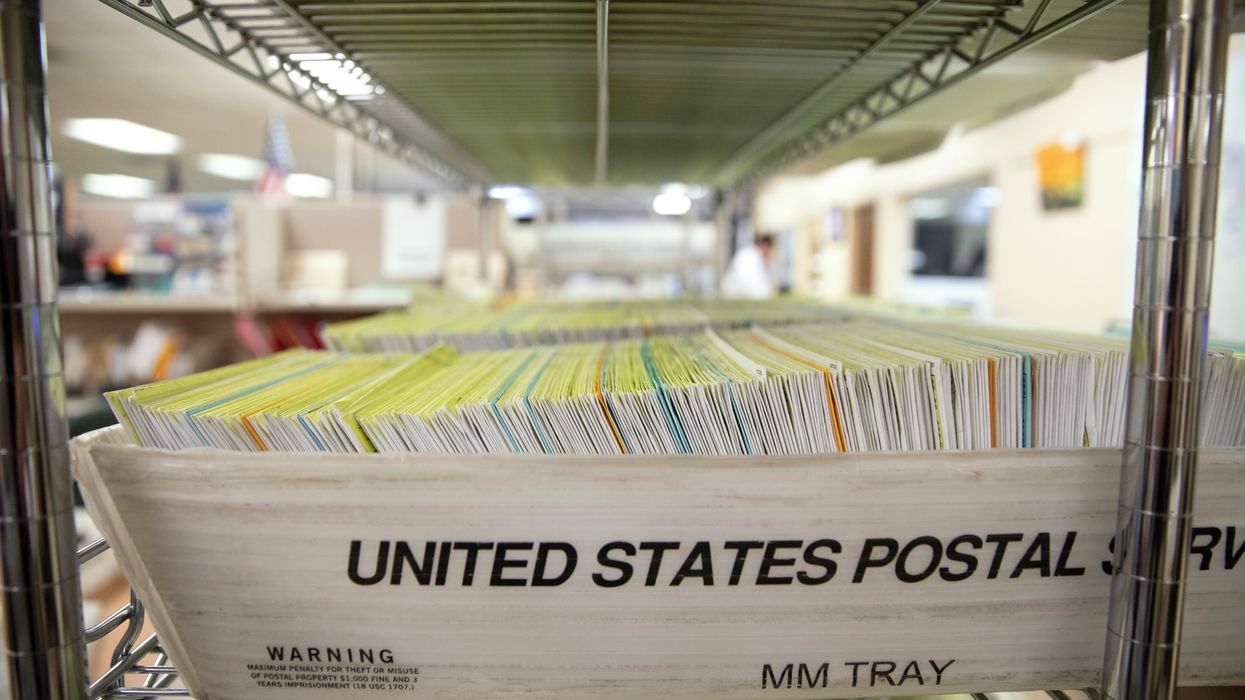With the coronavirus still infecting and killing people, particularly the old and infirm, there have been increasing calls to move America to an all-mail-in ballot for this November's election. This campaign is being advanced through legislation — the economic recovery package the House passed two weeks ago dubbed the HEROES Act, which would allocate $3.6 billion to allow every American to vote by mail this fall — as well as by clearly coordinated lawsuits all over the nation that seek to overturn state election law.
Most of the pressure for massively expanding mail-in ballots comes from the political left. Why is this?
Only five states conduct all elections by mail: Colorado, Hawaii, Oregon, Utah and Washington. It took them many years to develop their systems, safeguards and capacity to make such all-mail-in elections possible.
There are a few salient problems with this national push to move ballots to the mailboxes.
First, our elections are administered by the states, not the federal government. And in most states, the responsibility for conducting elections is delegated to the counties. Thousands of counties nationwide can't simply discard tried and proven systems overnight and put in place an all-mail system. For instance, the large volume of mail ballots would overwhelm signature verification safeguards now in place. In such a scenario, millions of ballots would be counted with no assurance they were cast by a lawful voter.
Second, most states do not have voter identification requirements for mail-in ballots other than signature matching, which can be ignored.
Third, in this time of government budgets strained by the Covid-19 outbreak, all-mail elections can significantly increase printing costs for an election. Harris County, the biggest county in Texas, has appropriated $12 million to meet the potential additional costs of conducting July primary runoffs and the November election in Houston — if the state law limiting mail-in ballots to specific groups of people gets waived as the result of lawsuits claiming fear of Covid-19 constitutes a disability.
Fourth, shifting to an all-mail-in election will potentially subject every voter to coercion by family members or ballot harvesters.
Fifth, an all-mail-in election will significantly slow election returns and invite lawsuits over the validity of ballots returned without a postmark, or that arrive after Election Day.
Lastly, and perhaps most ironically, proponents of an all-mail-in election as a response to the risk of catching the coronavirus at the polls ignore the greater likelihood of voters being exposed to the virus by ballot harvesters going door-to-door.
Further, the fear that polling places are inherently less safe than grocery stores is contradicted by the experience of Wisconsin's April 7 primary, when perhaps 52 people may have contracted the virus out of more than 1.5 million votes — at a time when there were more than 6,500 Covid-19 cases in the state.
What can happen when an election is conducted mostly by mail? Absentee ballot use had been growing for years in California. The Republican Party routinely dominated vote-by-mail balloting in the nation's most populous state. It was particularly well-suited to the Republican voter profile: an older, higher-propensity voter who preferred to study the state's often voluminous election information pamphlets and then cast their votes from home.
But California passed two laws in 2016. One allows non-relatives to handle absentee ballots, help fill them out — and get paid to do so — while the other started moving the state toward an entirely-by-mail election system.
The 2018 midterm election results were predictable.
The Golden State's powerful labor unions mobilized an army of door-to-door harvesters to target the young, first-time voters who had often been automatically registered to vote at the Department of Motor Vehicles because of the federal Motor Voter Act. The harvesters returned, time and again, to these voters' homes — urging them to vote by mail and sometimes hand over their ballots, completed or uncompleted, sealed or unsealed, to the paid ballot harvester.
(In this, the practice of ballot harvesting has a lot in common with another well-worn labor tactic: card check elections. Unions trying to organize workers at a company use the card check system to win a unionization vote when they obtain access to workers' names, addresses and phone numbers. Then they visit the workers at home, pressuring them or misleading them into signing cards that only appear to request a secret ballot election — when in reality the forms authorize the union to act on behalf of the worker for the election itself.)
Republican candidates in California were swamped. The GOP lost seven seats in Congress, three seats in the state Senate, and five seats in the state Assembly — a rate of defeat far in excess of midterm losses elsewhere in the nation, which conformed more closely to historical norms for the party in the White House.
Shortly after California made ballot harvesting legal, Texas took steps to rein in the practice after many decades of experience with "politiqueros "(political operatives) in the Rio Grande Valley and some of the inner-city precincts of Houston and Dallas. The Legislature enacted a 2017 law widening the definition of mail-in voter fraud and increasing penalties for those who commit it. But just because something is made illegal, or the penalties get enhanced, doesn't mean the lawbreaking will cease.
While some states protect the identities of those who request mail-in ballots, shielding them from intimidation, a national vote-by-mail mandate would encourage ballot harvesters to go door-to-door, confident in knowing there are votes to be collected in every home.



















Trump & Hegseth gave Mark Kelly a huge 2028 gift